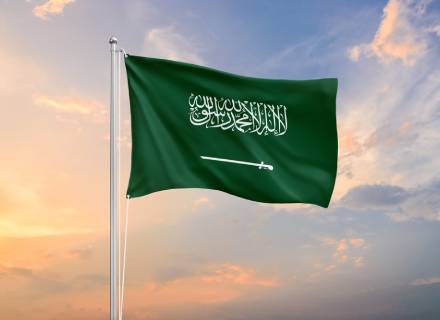Saudi Arabia’s non-oil business activity expanded at a slower pace in May 2024 as growth in new orders fell to a 25-month low, a business survey has shown.
The seasonally-adjusted Riyad Bank Saudi Arabia Purchasing Managers’ Index fell to 56.4 in May 2024, from 57.0 in April, and was the second lowest reading in 22 months, higher only than January’s low. A reading above 50 marks indicates an expansion in activity.
Growth in sales was also the least marked in just over two years. Demand expanded at a slower pace as some companies reported a slowing of market conditions and difficulties gaining new customers due to high competition.
However, the surge in demand has also led to price pressures impacting input prices and staff costs, although the increase in output prices has been observed at a slower pace, said Naif Al-Ghaith, Riyad Bank’s chief economist.
“This balancing act reflects the challenges faced by businesses in managing costs while trying to capitalise on the expanding market,” Al-Ghaith said, as reported by Zawya.
Inventory growth continued after reaching its highest on record in April 2024. However, higher stock levels led to some pullback on purchasing growth which slipped to the weakest since September 2021.
The slowdown also coincided with a drop in business confidence towards the 12-month activity outlook, bringing sentiment to its lowest level since January 2024.
“Employment levels increased in May 2024, offsetting the first decline in over two years in April. Staffing growth was mostly linked to higher workloads and efforts to reduce outstanding orders, which duly fell slightly,” the report said.
“Cost pressures eased from the beginning of the year despite a solid increase in supplier prices and a much quicker rise in employee wages,” the Riyad Bank study noted. However, selling prices rose only marginally as firms reacted to growing competitive pressures.
Talking about the Kingdom’s non-oil sector, the revenues generated from it hit 50% of the Kingdom’s GDP in 2023, the highest level ever. The non-oil economy was valued at 1.7 trillion Saudi Riyals (approximately USD 453 billion) at constant prices, driven by steady growth in exports, investment and consumer spending.
In 2023, as per the data available with the Saudi Arabia Ministry of Economy and Planning, the Kingdom’s private-sector investments expanded by a brisk 57%, reaching a record high of 959 billion Saudi Riyals (USD 254 billion) while arts and entertainment, along with real service exports grew in triple-digits to the tune of 106% and 319%, respectively.
The food sector also recorded 77% growth; transport and storage services grew 29%, health and education recorded growth of 10.8%, trade, restaurants and hotels at 7% while transport and communications increased 3.7%.

